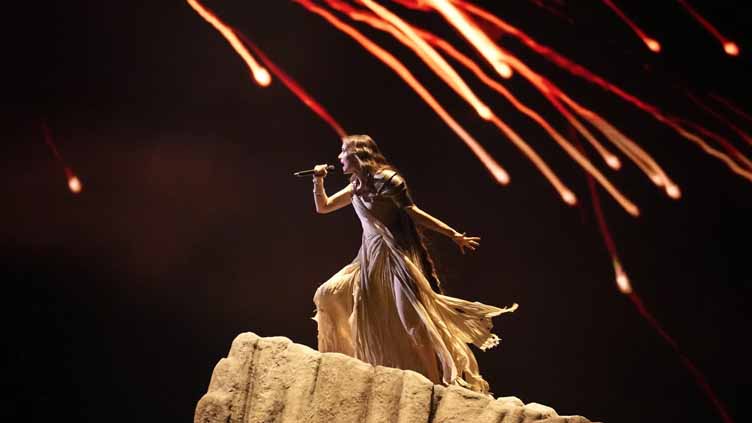What to know about the Eurovision Song Contest as Switzerland prepares to host

Entertainment
Eurovision has become synonymous with elaborate costumes, spectacular staging and songs
LONDON (AP) — Get out the glitter balls, sew on the sequins and prepare to party: The Eurovision Song Contest approaches.
The 69th annual musical extravaganza takes place in Basel, Switzerland in May. It will see acts from 37 countries vie for the continent’s musical crown in a contest that has been likened to a pop Olympics, complete with triumph, tears and geopolitical rivalries.
Here’s a guide to the wonderful world of Eurovision:
What is Eurovision?
Eurovision is an international pop music competition, in which acts from countries across Europe — and a few beyond it — compete in a live televised contest. Each singer or group performs a three-minute song, with the winner decided by votes from national juries and viewers around the world.
Launched in 1956 to test new live-broadcasting technology and foster unity after World War II, Eurovision has become a campy yet heartfelt celebration of diversity, national pride and the joyous power of pop. It has grown from seven countries to almost 40, including non-European nations such as Israel and Australia. Organizers say last year’s competition was watched by 163 million people around the world.
Eurovision has become synonymous with elaborate costumes, spectacular staging and songs that range from anthemic to extremely silly. Past winners include songs with titles like “La, La, La” and “Boom Bang-a-Bang,” as well as soaring power ballads and slick disco dancefloor-fillers.
Past champions range from Sweden’s ABBA — with “Waterloo” in 1974 – to Finnish metalheads Lordi in 2006, Austrian drag performer Conchita Wurst in 2014, Italian rock band Måneskin in 2021 and Ukrainian folk-rap group Kalush Orchestra in 2022.





